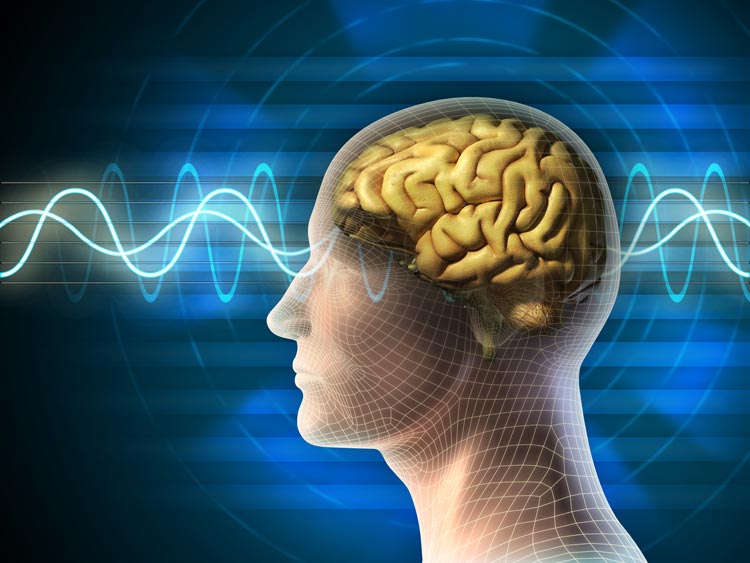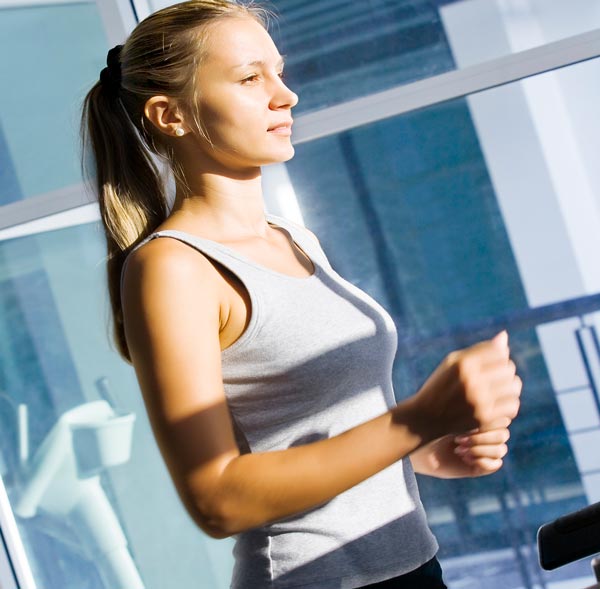Stress
The most important thing to understand is that stress is a state of mind and is very personal. Some people are very calm in situations that other people find extremely stressful. The only difference is how they interpret their experience.
You can turn any situation that is currently stressful into one in which you feel comfortable and at ease. It is a matter of preparation and objectivity.

20 Ways To Eliminate Stress
A number of techniques are given here to help you to reinterpret situations in an non stressful way. Some of these techniques will be new to you, other will seem extremely obvious. However, it is easy to forget about the obvious. If you treat this 20 step program as a check list and run down it on a daily basis, it will help you to focus on what is important and effective.
- 1. Prepare For Stressful Events
2. Get In Tune With Your Own Body Rhythms
3. Be Creative
4. Exercise
5. Aromatherapy
6. Massage
7. Breathing
8. Relaxation
9. Nutrition
10. Humor - 11. Touch
12. Love And Affection
13. Control
14. Anchoring
15. Brain Wave Training
16. Internal Voice
17. Environment
18. Good Sleep Pattern
19.Get A Pet
20. Anti Stress Hypnosis (CD Offer)
1. Prepare For Stressful Events
Write down all of the events in your life that you feel are stressful. Take your time and include even the seemingly trivial ones. Write down how the stress shows itself for each of these events. If you’re not sure exactly how stress affects you then refer to the section on stress symptoms below.
There are two important ideas that you have to understand. If you combine them then you will have the power to eliminate any stressful situation.
- 1. You create the stress within yourself because a situation is unfamiliar or threatening and you are afraid of the outcome
- 2. What you create in your mind, your mind perceives as real.
Using these two basic ideas produces a 3 step technique to eliminate potential stressful situations:

1. Acceptance
If you are prepared to accept, truly accept, any outcome and immediately move on, then the fear will no longer have any power over you. The best way to do this is to imagine the worst possible outcome and make an agreement with yourself to accept it and live with it if it happens. Plan for this eventuality. It is not pessimism, it is good planning. It puts you at the back of the queue from where you can only move forward, optimistically. Once you’ve done this, any outcome is an improvement to be welcomed.
2. Familiarity
If you make yourself familiar with a situation, learn it inside out, then it’s influence over you vanishes. You become desensitized. Most people are nervous the first time they drive a car, but a year later they are driving automatically without a second thought, leaving it all to their subconscious.
So, what is the best way to familiarise yourself with a situation without actually doing it?
3. Mental Rehearsal
Most people need to get things right first time and don’t have the luxury of being able to practice it over and over again so that it does become familiar. So, you practice it over and over in your mind. Mentally rehearse the situation. There is buckets of research now to show that workouts and physical exercises imagined in the mind actually produce real muscle growth. The best way to do this is to make a scripted film. Run it from start to finish as if it was actually happening. Make it as vivid as possible. Make it bright and loud and close up. Don’t let your thoughts wander and reduce to directionless worrying. Try and get into the feelings and sounds and people involved. Repeat this as often as you can.
2. Get In Tune With Your Own Body Rhythms
Day and night your body runs on a time cycle that lasts about 90 minutes. Known as the ultradian rhythm, during the night this controls how deeply you sleep. During the day you will find that every 90 minutes or so (it can vary 75-120 minutes) you feel a little less energetic, perhaps a little sleepy. See the pages on Sleep and Insomnia for a more detailed account of ultradian rhythms.
Some people recommend taking power naps at these times during the day, but most people don’t have the luxury of being able to do this. However, you should be aware of it and allow yourself to relax a little and be a little less productive, in preparation of a more energetic and productive hour ahead of you.

Stop worrying about things you can’t control … a tiger doesn’t lose sleep over the opinion of a sheepMilton Erickson
3. Be Creative
Do something creative. Self expression is a great stress reliever. Learning and playing a musical instrument or painting and drawing produce brainwave activity that induces calm. Recent research into brain activity has shown that simple manual tasks, even something as mundane as doing the washing up, create pleasure. Finishing a seemingly insignificant task is very therapeutic.


4. Exercise
We are made to move, not to sit down. Exercise is essential for good physical health and having a heathy body helps mental health. Exercise greatly reduces stress. It keeps the heart healthy and helps the blood circulation. 30% of the movement of blood in your body can be supplied by the movement of our legs. Regular exercise reduces stress hormones and releases mood-enhancing hormones like endorphins which help us cope with stress a lot better.
Increase levels of endorphins in your body produce feelings of euphoria, the release of different sex hormones as well as improvements in the immune systems. These all reduce the symptoms of stress. Exercise also relaxes tense muscles and tissue which can eliminate stress-related neck stiffness, headaches and back pains.
5. Aromatherapy
Certain essential oils have profound relaxation effects. They can be used as vapour or as part of a massage program where they are absorbed directly through the skin.
Good essential oils for removing stress are;
- Bergamot (10)
- Camomile (1)
- Clary Sage (4)
- Jasmine (1-2)
- Lavender (7)
- Marjoram (3)
- Neroli (2)
- Rose (1)
- Rosewood (6)
- Vetivert (1)
The figure in brackets is the blend factor. This is the ratio of each if you want to combine them. You probably wouldn’t want to combine more than three oils at the same time. Once you have mixed the essential oils in the right proportions you then add about 5 (a maximum of 7) drops to 30ml of a base oil such as grapeseed oil. Grapeseed oil is best as it is a good carrier and it is highly unlikely that anyone is allergic to it.

It is best to consult a professional as certain oils should not be used on some people, especially if they are pregnant, suffer epilepsy, chronic illness or skin sensitivities.
6. Massage
Any massage is good. Try to get a deep lymphatic drainage massage every now and then to help remove toxins from your system. Indian head massages are great for relieving stress.
A recent study into Swedish massage techniques at the Cedars-Sinai’s Department of Psychiatry and Behavioral Neurosciences showed beneficial changes in the body’s immune and endocrine response.
The study showed:
- The Swedish massage produced significant changes in lymphocytes ,(lymphocyte numbers and percentages white blood cells that play a large role in defending the body from disease.
- The massage caused a large decrease (effect size -.74) in Arginine Vasopressin (AVP) a hormone believed to play a role in aggressive behavior and linked to helping cause increases in the stress hormone cortisol.
- The Swedish massage caused a decrease in levels of the stress hormone cortisol.
- The Swedish massage caused a notable decrease in most cytokines produced by stimulated white blood cells.

7. Diaphragmatic Breathing
When you feel stress then you start to take shallow breaths in the upper chest. Your body is preparing itself to take avoiding action. Although not a cure for the causes of stress, overriding this breathing pattern will reduce the symptoms.
Any deep breathing exercise is beneficial but see the page on diaphragmatic breathing for a recommended method.
8. Relaxation
Relaxation, like breathing techniques, can reduce the symptoms but does not deal with the underlying causes. Use the technique on the self hypnosis page. This is an excellent way to relax both your body and your mind.
Incidentally, relaxation is not watching television, smoking or drinking. These all tend to increase the stress, although, like drugs, the temporary relief from cravings can make you feel better for a short period, do not mistake that for relaxation.

A warm bath is a good idea.

9. Nutrition
This is especially important for blood sugar levels. If they are swinging up and down because of high sugar intake your mood will be too. It is in one of the low blood sugar level slumps that you are going to be very vulnerable to stress. NO sugar, cakes, sweets, biscuits, deserts. These are all stress inducing foods.
10. Humour
This is a very personal thing but whatever your fix, get a daily dose. Plan it. Add it to your diary or daily schedule. It stimulates all sorts of useful neurochemicals in your brain that make you feel happier and less stressed. Tell jokes, watch funny films or stand up comics, whatever suits you. laughter is very, very useful.
One note of caution. If you can, do not combine this with drinking. It is easy to link fun to drink, but, your body is quite stressed removing alcohol from your system. The mind and body are strongly linked. Do not fall prey to the old myth that a good stiff drink is relaxing.


11. Touch
Human contact is essential. Some misguided (in retrospect) experiments with orphaned babies many years ago had them brought up without any physical contact or affection from another human. The experiment had to be abruptly stopped, but too late to prevent several of them from shrivelling up and dying from grief and neglect. Western society does very little touching compared with other societies in the world and it appears to be reducing more and more.
12. Love & Affection
Lots of good destressing substances like seratonin available for free here. It appears that giving to a responsive receiver is better for you than just receiving.


13. Control
Know what you have control over in your life and what you do not have control over. If you have control use it. If you do not, then you have to accept this fact and plan accordingly. There is no point wasting energy trying to control something that you cannot. We all have to hand over the control for some things in our lives.
If you’re having problems releasing control and are constantly fighting it, then you need to realise that you are already constantly handing over control to someone very important. Your subconscious mind. When you go to sleep at night your subconscious controls your breathing, your heart rate, it is listening for any signs of danger though you are not consciously aware of it.
The best place for control is your subconscious because it manages things flawlessly. You need to get your conscious interfering mind out of the way. Hypnosis is the easiest way to do it. Conscious acceptance comes a close second place, or you can do it the hard way and battle it until you have to give in, with all the resulting damage to your self-esteem. Do not go into the realm of low self-esteem control addict.
14. Anchoring (NLP Technique)
Create a relaxing and calm anchor that you can use at stressful moments. See the page on Anchoring for a full explanation how to do this. It shouldn’t take you more than 10 or 15 minutes, though you may need to revisit it and build it up every now and then.


15. Brain Wave Training
A lot of studies into brain wave activity have identified that under stress we tend to exhibit sustained levels of beta brain wave activity. Refer to the page onbrain waves for a full explanation and some useful free software if you feel inspired to try it out.
16. Your Inner Voice
We all have internal voices that reflect our thoughts. If your internal voice sounds depressive or stressed then you can change it to a happy optimistic one. If you find it difficult, choose someone you know or a film character that has a positive effect on you when you hear their voice. Substitute their voice for your old internal voice. This can be quite an uplifting experience.


17. Environment
Make your work or home environment more pleasant. Change something. This gets you to focus on something outside of yourself over which you have control and can perfect to your own taste. Very therapeutic.
18. Establish A Good Sleep Pattern
See the pages on Sleep and Insomnia. . Lack of quality sleep can be very stressful.


19. Get A Pet
Research has shown that having a pet around you helps stimulate calm brainwave activity. The purring of a cat has been shown to be very effective in reducing heart attacks.
Really, just ask anyone with a dog. You get fresh air and exercise and a play buddy. Plenty of research into the benefits. pet owners apparently live longer.
20. Hypnotherapy
Designed to quickly relax your mind and body, 40 minutes of deep hypnotic relaxation can feel like the equivalent of several hours of quality sleep.
The main hypnotic recording teaches you to use relaxing memories, progressive muscle relaxation and breathing techniques to help you reduce stress at any time.
Discover how easily you can drift into a deep hypnotic trance. The more you do it, the deeper you go. If you have never experienced this, you really must, it is different to ordinary forms of relaxation.
3 Sessions lasting a total of 48 minutes:
Deep Calm (36m)
Power Nap (8m)
Quick Relaxation (4m)

£9.95 + £2.95 P&P
